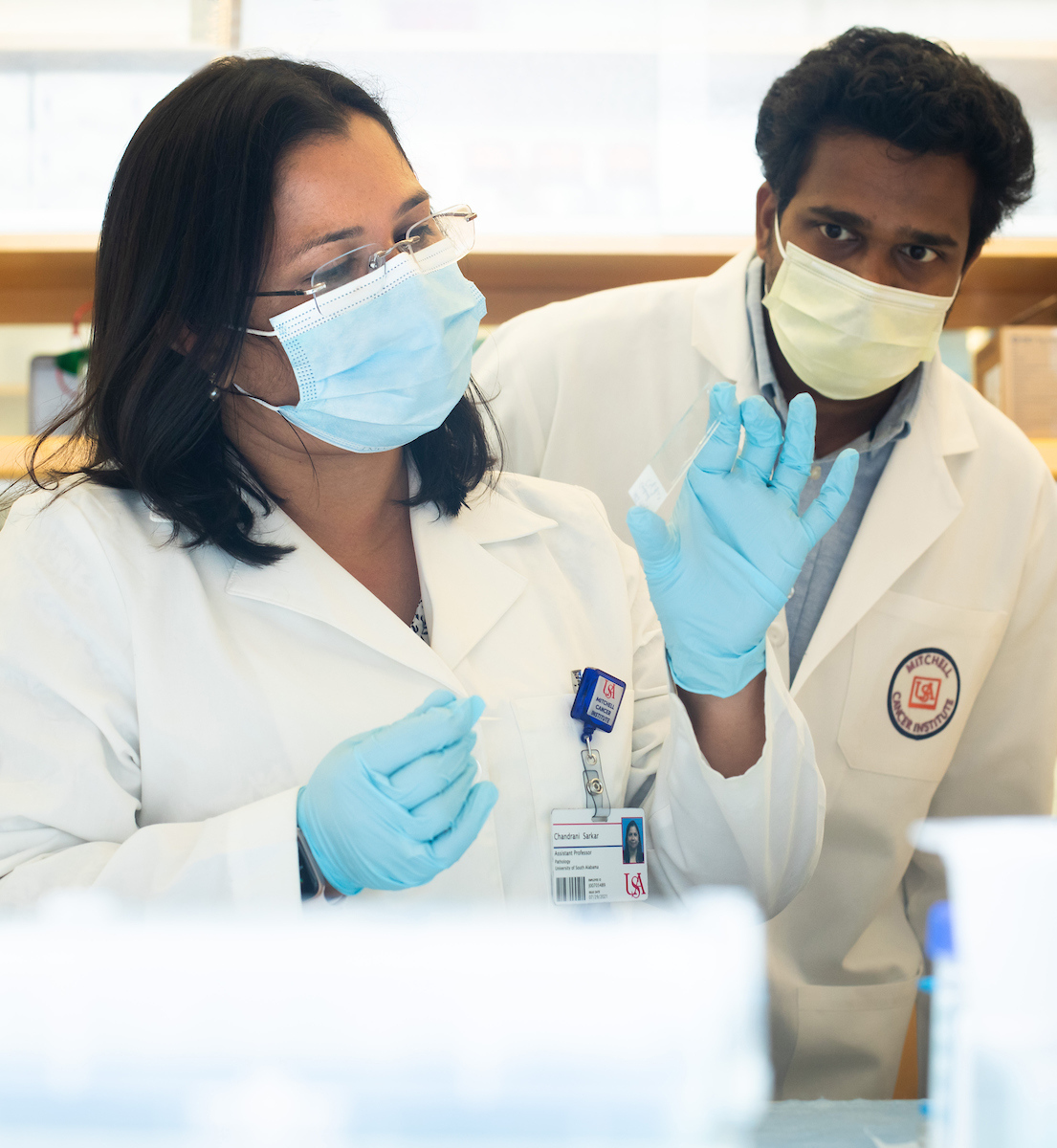
Researchers identify novel independent regulator of colon cancer angiogenesis
Led by Chandrani Sarkar, Ph.D., assistant professor of pathology, the research team has identified neuropeptide Y (NPY) derived from cancer cells as an independent regulator of colon cancer progression.

By Lindsay Lyle
[email protected]
Researchers at the USA Health Mitchell Cancer Institute and the Whiddon College of Medicine have identified neuropeptide Y (NPY) derived from cancer cells as an independent regulator of colon cancer progression.
Neuropeptides are chemical messenger molecules that co-exist in nerve cells with smaller neurotransmitter molecules, allowing neurons to communicate with one another. NPY is one of the most abundant neuropeptides in the body, widely expressed throughout the central and peripheral nervous systems.
The research, led by Chandrani Sarkar, Ph.D., assistant professor of pathology, recently was published in the British Journal of Cancer. Their findings provide the first evidence that NPY promotes angiogenesis – the formation of new blood vessels from existing vessels – in colon cancer, thereby promoting growth and progression.
“Angiogenesis is a well-established target for treating several cancers because it is an essential process required for the growth and metastasis of many solid tumors, including colon cancers,” Sarkar said.
Vascular endothelial growth factor-A (VEGF-A) is the most potent angiogenic factor promoting tumor growth and metastasis in colon cancer. Anti-VEGF-A agents, combined with chemotherapy, are used to treat patients with metastatic colon adenocarcinoma.
However, the benefits of the presently used anti-angiogenic agents targeting the actions of VEGF-A are limited. Reports indicate that cases of resistance or non-response to anti-VEGF-A therapy have been observed in patients.
Researchers at USA Health have found a potential alternative. Results from their study demonstrate that neuropeptide Y, through its Y2 receptor (Y2R), actively promotes angiogenesis in colon cancer. “Thus, NPY-mediated angiogenic pathway can be an important alternative angiogenic pathway in advanced colon cancer patients,” Sarkar said.
Using Y2R antagonists alone or adding Y2R antagonists to conventional chemotherapeutic and anti-angiogenic treatment regimens in colon adenocarcinomas that express high levels of NPY is a promising therapeutic strategy, she said.
Contributing authors from USA Health include Debanjan Chakroborty, Ph.D., a member of the Cancer Biology Program at the MCI and assistant professor of pathology at the Whiddon College of Medicine; and Sandeep Goswami, Ph.D., a postdoctoral researcher at the MCI and the USA Department of Pathology.
This study was funded by a grant from the National Cancer Institute, National Institutes of Health. The authors are thankful to the Mitchell Cancer Institute and the USA Department of Pathology for the research support they received.




